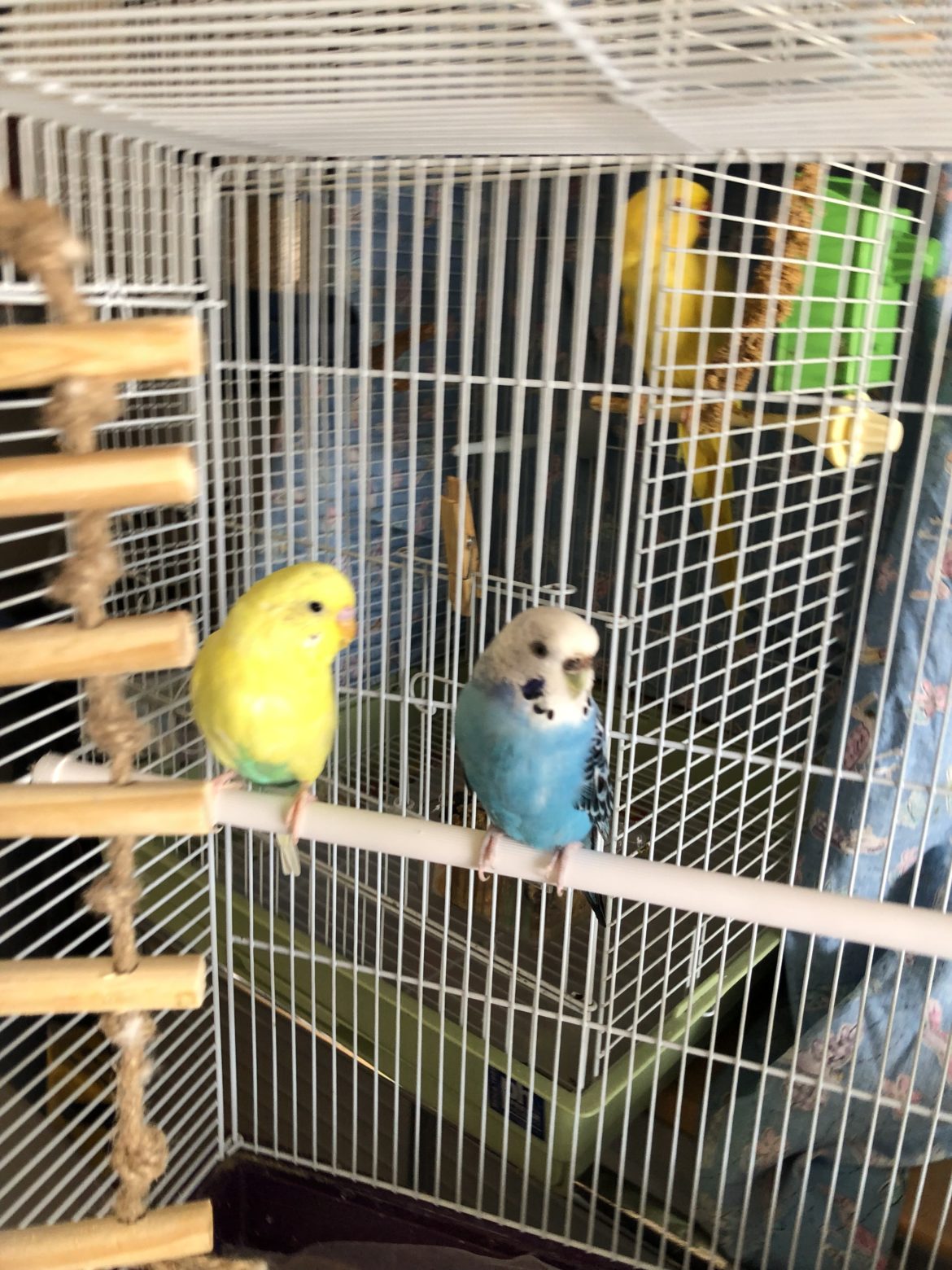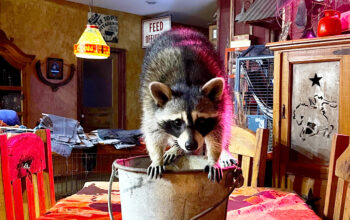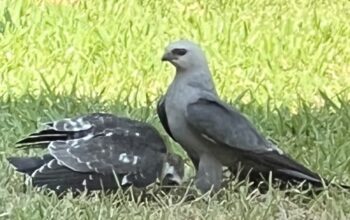Parakeets are enthusiastic little eaters. They are best kept on a fully organic diet for fruits and vegetables and don’t need chemical sprays or herbicides on their food.
Since most grocery stores have a section for organically grown foods, it is fairly easy to provide them a healthy diet.
Good nutrition is crucial to your bird’s health and can make the difference between a loving, happy bird and a hostile, sickly bird. With secondhand or adopted parakeets, many times the bird has not been fed an adequate diet and may refuse to eat anything but seeds or pellets. So not only do you have a malnourished bird, you have a diet-resistant malnourished bird.
If the bird you take home is too picky to eat a healthy diet, feed him something he WILL eat to keep him alive. Then introduce new foods one or two at a time until your bird is eating better. This could take months, since birds are notoriously suspicious of new foods. Keep trying; it may take a while.
The best tact is to decide what you want your bird to adapt to first, and simply place that food in his bowl everyday along with food you’re sure he’ll eat. When he finally begins to eat the new food, add another. If the food is a vegetable or fruit, let him see you eat it.
Parakeets tend to be omnivores meaning that they eat both vegetative foods and meat. Here are the components of a healthy DAILY diet for an exotic bird like a parakeet:
*Nuts – left in the shell preferably; pecans, peanuts, almonds, walnuts, hazelnuts, etc.
*Seeds – small to medium sunflower seeds, canary seeds, white or red proso millet, and small birdseed mixes. Parakeets love seeds so I always provide a little bit every day.
*Vegetables – orange vegetables like carrots, squash, pumpkin, or sweet potatoes; green vegetables like peppers, green leaf lettuce (not iceberg), broccoli, some grasses (no pesticides), green beans and peas; peppers; any orange, dark green or red vegetable that humans eat. Orange vegetables are necessary to protect respiratory systems.
*Fruits – any kind of berries that humans eat, peach, pineapple, pear, apple, banana, or melon slices; dried fruits and grapes.
*Chop veggies and fruits in a food processor and serve fresh every day. Include a variety of colors.
*Protein – Cooked eggs, tiny pieces of ham, beef, pork, chicken, cheese, lamb, mashed cooked beans, cooked brown rice. (Add in small amounts to the veggie/fruit mix)
*Pellets – a few bird food pellets along with their other food can be beneficial for your bird. While a small amount of pellets is harmless for parakeets, providing a balanced diet of seed, fruit and vegetables, while avoiding pellets all together, works fine. And no bird is going to benefit from a complete pellet diet. You can buy processed whole nutrition pellets for your bird that say they provide a complete diet. However your bird shouldn’t live on a pure pellet diet no matter what the package claims.
*Granola bars – a small piece for a treat; our birds call them “cookies”.
*Millet Sprays – maybe once a week for a treat. They offer some nutrition for the diet but are not heavy in nutrients from what I get from research. They do assist in foraging and are entertaining for the birds. Parakeets absolutely love them.
*To add interest to your bird’s diet, you can find recipes for baking Birdie Bread on the internet. They love birdie bread. Most recipes include corn bread mix with chopped veggies, nuts, and fruit.
Don’t feed your bird:
Chocolate
Onions
Avocado
No more than a tiny bit of sugar or ice cream
Caffeine
Too many millet sprays
Milk and milk products
Unwashed produce with pesticides
Water
Please change your bird’s water every single day. Old water harbors germs. Birds need fresh water, not just for drinking, but also for keeping themselves clean and their feathers beautiful. If you use water from your own well, have it tested for purity so that neither you nor your bird is taking in germs or toxins. Spray them down at least once a week for a bath.




